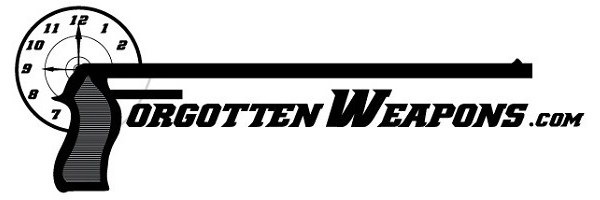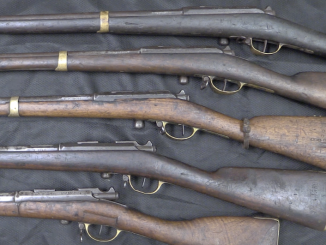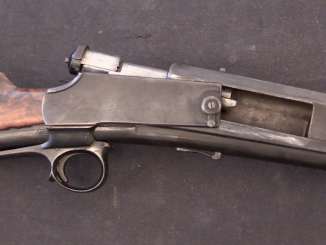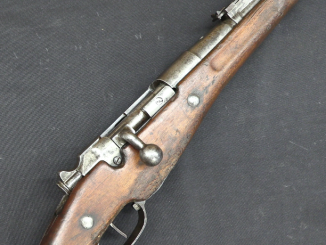Émile Driant was a French army officer who served originally as an aide to General Boulanger (and married his daughter). This connection would tarnish his career when politics forced Boulanger to resign (and shortly afterward commit suicide). It became clear that he would never rise much in rank, and in 1905 he resigned his commission. In 1910 he was elected to the French National Assembly, where he was still serving when was erupted in 1914. Driant was focused on French military readiness his entire life, and wrote extensively about potential future wars.
In 1914, he was recalled to military service, although he retained his Assembly position. He was given command of a reserve unit of Chausseurs (infantry) in the quiet backwater Verdun sector, where he couldn’t cause too much trouble to the military establishment. Through 1915 he watched Joffre remove men and guns from the forts around Verdun to reinforce more active areas of the front. He was intensely concerned that this was leaving Verdun a weak point ripe for German attack. As an officer, there was not much he could do about this except complain to his own commander – but as an active member of the National Assembly, he was able to bypass the military chain of command and take his concerns directly to the civilian government. This did nothing to endear him to Joffre, but the attention he brought did result in more defensive preparations being made in and around Verdun.
On February 21st, 1916 Driant’s warnings were proven true when the Germans launched the Battle of Verdun, which would become one of the most significant operations of the war for France. Driant and his 1200 Chausseurs were stationed in the Bois de Caures forest, right in the middle of the German offensive. His men fought valiantly to hold back the attack in their sector, but were reduced to less than 200 men combat-effective by the 22nd. Driant ordered a withdrawal that morning, and was killed by a gunshot while aiding a wounded trooper.
He was buried with military honors by the Germans, but later re-interred by the French where he had fallen. Today his command post remains just a few hundred yards from his gravesite, and a memorial marks the spot. Driant quickly became recognized as one of the heroes of Verdun, for his efforts before the battle and his front-line leadership during the initial attack.




Hi, fascinating post as always, only it’s actually Chasseurs (`hunters’, = light infantry) not Chausseurs (`cobblers’ or “shoe shops’) , but it’s a minor detail, yours, Evert van Ginkel, Leiden, Netherlands
I hope nobody else gets it wrong, but misspelling is the least of our problems at this point as context can give us the idea for correcting the text. Conjugation based on tense and subject/object description is one sticky mess already, and gendered nouns/adjectives make for a bigger mess so far as beginners are concerned in French. I cringe at people doing blind word-for-word translations. Believe me, Québécois folks were a bit put off by American tourists speaking butchered “proper” French.
Well I thought the rest of the text was all right really , if it’s a translation (is that what you mean to say?), there’s nothing wrong with it, it’s just the Chasseurs. As I said, a minor detail.
Quebeckers and French language? Right. I met couple of people, most significantly man who grew up in France, who told me they just did NOT understand what they spoke. That particular man and his family ended up in Ontario.
Well, I meant to say that there are worse problems than misspelling. Trying to speak a foreign language without any understanding of its basic grammar is far worse than just typing one word from that language wrong.
Strictly, “Chasseurs a Pied” (“Hunters on foot”). There were also “Chasseurs a Cheval” (“Mounted hunters”) that formed most of the Light Cavalry (Along with the Hussards and Lanciers). Incidentally, the Chasseurs a Cheval de la Garde Imperiale was Napoleon’s favorite unit and provided his bodyguard and orderlies.
“Among the four duty squadrons the chasseurs had a special task: a group of 20-30 men rode in front and behind the Emperor, while a corporal and 4 chasseurs cleared a way for him. One of the four carried his despatch case and another his field glass.”
The famous painting of Napoleon with his hand thrust into his coat shows him wearing the uniform of Colonel in Chief of the regiment
https://en.wikipedia.org/wiki/Chasseurs_%C3%A0_Cheval_de_la_Garde_Imp%C3%A9riale
Along those same lines it’s Boul-an-jhay. Not Boul-an-ghere.
Sort of like magazine and clip.
And, may I snobbishly add, it’s Dree-ahn, not Dree-ant. Oh well.
I visited Fort de Vaux (For the Vôh I guess) near Verdun in 1974, a veteran guide (there were lots of them still about there and then) told our group of visitors about the last messenger pigeon from the fort to have reached the French HQ, it received the Legion of Honor medal and was later stuffed and put on display at the National Army Museum in Paris. Some young German tourists thought ths was funny, they really shouldn’t have. The old vet exploded like a soixante-quinze (75) shell, or something heavier still. Mind you I was only 19 then myself still but I knew better than to laugh at this.
“He was buried with military honors by the Germans“
That’s one aspect that I find fascinating about WW 1. (And WW 2 as well to a lesser extent.)
That kind of… chivalry or spirit of chivalry that you saw examples of.
Some of it goes beyond mere recognition of a brave enemy and almost sounds preposterous in today’s ears. Like when you read about POWs who weren’t put in POW camps, but were put in a private house without guards if they gave their word of honor as an officer that they wouldn’t try to escape.
Quaint? Perhaps. But I think we’re poorer without it.
In WWII, an Allied prisoner escaped from Colditz castle to Switzerland. He then wrote the camp commandant to ask him if he would please forward the belongings he had left behind in the prison to his new address. And the commandant did just that.
Readers might like to read Alistair Horne’s The Price Of Glory. It’s a study of the battle and the men who fought it.
“if they gave their word of honor as an officer that they wouldn’t try to escape”
This is known as “giving one’s parole” or “accepting parole”
and is forbidden to American troops by Article III of the Code of Conduct
“I will accept neither parole nor special favors from the enemy”
Ah! I wasn’t aware of that term being used, interesting!
Here’s an example I fell over: A British officer was held as a POW by the Germans, and got word that his mother was dying of cancer. He wrote the Kaiser asking for an opportunity to visit his mother, and actually got it! The Germans/the Kaiser let him travel to the UK for two weeks (and an extra two days of “leave” for traveling time each way) JUST ON THE BASIS ON HIS WORD OF HONOR that he’d return.
And not only did he keep his word and came back, the British also let him.
https://www.telegraph.co.uk/history/10284851/Army-officer-freed-from-POW-camp-kept-promise-to-return.html
You couldn’t imagine a similar scenario today, despite all of our supposed advancements in human rights, etc.
(And yes, obviously WW1 was also an unbelievably bloody and brutal conflict. Something that only makes stories like the above even more remarkable.)
Btw: When is that particular part of the code of conduct from?
I assume this was an exception compared to other nations? The system of “giving one’s parole” seemed to be fairly common before WW1.
I wonder if it has anything to do with the American army (and society) being relatively less divided by class, compared to many other nations at the time? America obviously had class differences, but didn’t have an aristocracy or nobility that officers in other countries often came from.
The US Military Code of Conduct dates from 1955. It was a response to US POWs in Korea cooperating with the Communists. In more civilized times, the idea of parole held – Grant gave Lee’s Army of Northern Virginia parole in 1865.
Cooperation? More like some POW’s were mentally tortured to the point of breaking down, being forced to watch their less-fortunate friends BUTCHERED AND EATEN ALIVE!!
My great great grandfather signed the “parole” at Appomattox, Virginia in 1865 (Corporal, 7th SC Cavalry). Of course, in reality it was a surrender. There were, however, situations similar to the above that during the Secession War. As you can imagine, there was a lot of “across the lines” connections.
I remind everyone FDR gave Italian PoWs held in the US just that if the agreed to work in California while keeping American citizens in concentration camps because it was supposedly “too dangerous” for them to remain in that same area (pay no attention to the literal essays FDR wrote hoping to get rid of his victims well over a decade before Pearl Harbor).
Ahh yes, FDR…the liberal Hero.
“(…)
“if they gave their word of honor as an officer that they wouldn’t try to escape”
This is known as “giving one’s parole” or “accepting parole”
(…)”
This reminded me about Captain Robert Campbell history:
https://allthatsinteresting.com/captain-robert-campbell
“politics”: Failed a coup, fled when investigated.
“The coup” was more of a missed opportunity than a failed plot, from what I’ve read. A coup against a corrupt, unpopular and self serving establishment.
If a writer is in need for an interesting point of departure for an alternative/contrafactual/speculative historical novel, a coup by General Boulanger would be a no-brainer.
The French monarchy gets reestablished, and with Boulanger (General Revanche!) as minister of war, war between Germany and France breaks out in the 1890ies. No World War One, no Soviet Union, no World War 2.
It could have been…. Interesting!
I did wonder what the “politics” was…thanks.
These are sombre places with memories of sombre events –
and old continent is full of them. However, I want to bring to attention of brighter side of it. At time of wars, including the Balkan turmoil in 1990s – the nations were asserting themselves, redefining their identity – often thru collective suffering. But they did. In the meantime, what had happened in Europe mostly thru creation of artificial super-national entity, does not give any longer chance for this to happen.
Thus thru ‘peace and prosperity’, sense of nationhood is vanishing. Nationalism had been given bad name and is on the way out. Is it for good, or just temporary? Don’t take me wrong – I do not stand for one or the other, just wondering.
I would like to suggest: what are places in any country, which create sense of nationhood – they are memorials to wars. Without wars, there would be no defined nations with their culture and jurisdiction. Sad but proven by past.
No country exists without a means to define itself. But ultimately, the country is best defined by its people. Without a well-defined people group, a nation cannot exist.
In ideal case, true. Now, look how well “defined” are Europeans of these days. They are shapeless universalist mass. All speak Euro-English so you cannot tell them apart. Who’s victory is it?
“(…)All speak Euro-English so you cannot tell them apart.(…)”
I do not know what Euro-English is, but I might assure you that, while they use “not-own” language when cooperating with foreign partners, national languages of European states are commonly used in their internal communication and far from dying.
Also note that you might often see head-of-states accompanied by Dolmetscher https://en.wiktionary.org/wiki/Dolmetscher
during international meetings.
I’d disagree. Yes, Wars create (or can help create) a sense of nationhood, but there are plenty of monuments and places that evoke nationhood that aren’t war memorials.
The pyramids for the Egyptians, for example. Parthenon for the Greeks. The Colosseum for Italians.
All examples of places, monuments that make people feel like part of a whole.
One for many
https://en.wikipedia.org/wiki/Nelson%27s_Column
that should suffice to explain what I mean.
Nationalism isn’t going anywhere my friend.
And neither is the nation state.
Yes, the EU has been successful at keeping peace and prosperity. (Though it could be argued, that even without an EU we would still have had peace in Europe post WW2.)
But notice that despite that success, people still think of themselves as French, Germans, etc. first, and Europeans as a distant second.
The nationstate is still the best, most direct and most democratic way to organize a government.
Also notice that as the EU has grown closer to being some sort of federated superstate, people in many countries have only become more sceptical towards Bruxelles, not less.
“Nationalism isn’t going anywhere my friend.”
——-
Globalist’s wet dream 🙂
Perhaps my understanding was in reverse, aka “nationalism” isn’t a worthwhile objective. If the case it was intended in reverse, I apologize. I would certainly hope that is the case.
Source of up to so my far knowledge comes ‘directly from the field’, sort of speak. And no, I am not inclined toward “extremism” of any kind. To take a responsible stand on anything requires heaps of previous knowledge – and conviction.
People in past had it considerably easier, they had sense of belonging (such as hero French officer) and they felt unavoidable duty to serve nation, emperor or president. Allegiance was clearly defined, not any more.
“But notice that despite that success, people still think of themselves as French, Germans, etc. first, and Europeans as a distant second.”
—————–
No, they don’t. They identify themselves by regions, not hypothetical countries. You can trust me, I am one of them.
Also, some educational material
https://www.bigeye.com/warstate.htm
Disclaimer: I am NOT forwarding libertarian ideology; just find it intriguing.
Wars are and remain a huge dilemma – with reasons for and against. In current times it is incumbent upon our leaders to weigh carefully all options and to negotiate with perceived opponents. The ends of unwarranted steps are way beyond intended gains.
One reason for my departure from Central Europe was risk of a major war which would devastate whole continent and beyond. There were still plenty of fresh reminders how WWII looked like (I have seen on my own eyes devastated Dresden). I doubt anyone had appetite for a new war.
So much more intriguing, if not shocking is to see speculations of this kind https://www.youtube.com/watch?v=lBLGhV1lbVU
Mind you, this would have been a different kind of war – not a “nation against nation” in the traditional sense. More I think about it, more I lean on tendency to pacifism, as silly as it may sound.
Don’t be ashamed of well-grounded pacifism. Such is based on realistic results of the analysis of postwar horrors, namely that the costs of fixing damages nowadays far outweigh any potential benefits or profits promised by unreasonable war hawks. Oh, and I didn’t mention the possibility of a government going bankrupt after the war ends. I could be wrong.
I appreciate your note, Cherndog.
I do not want to trash empty straw by saying that Americans and Canadians (meaning civilians) did not see war, but in this connection it is maybe fit. People who saw results of war – which is in Afrika, Asia and Europe have, for generation burning desire to avoid it – with occasional exception. But future is unknown and all we can do is to hope for the best.
Stories such as that made available to us by Ian adds to general awareness and as such are very useful. Hopefully we will not see another generation of war amputees not to mention endless lines of graves.
“(…)Wars are and remain a huge dilemma – with reasons for and against.(…)”
As Adrian Carton de Wiart once wrote:
Governments may think and say as they like, but force cannot be eliminated, and it is the only real and unanswerable power. We are told that the pen is mightier than the sword, but I know which of these weapons I would choose.
“One reason for my departure from Central Europe was risk of a major war which would devastate whole continent and beyond.”
Well, not only you were looking for places potentially less radioactive in case of war, including director of Dr. Strangelove
https://www.abc.net.au/news/2017-05-18/director-stanley-kubrick-planned-to-move-to-perth/8538058
I was of the belief that churrsere (sp?) were Calvary. I once had a breast and back plate from Chu. armor. Bought it at a yard sale for $25. Oh, how Antiques Roadshow and the Pickers have ruined yard sales. A friend bought a Holland & Holland double rifle at a yard sale for $100; I arrived just as he was leaving I didn’t know weather to pat him on the back, throw up or just cry. PS: love your posts.
Neal: I dont’know of any churrsere, but aren’t you mixing up chasseurs (infantry or light cavalry) and cuirassiers, the latter being heavy cavalry wearing breast armour and helmets (not after 1914, however)?